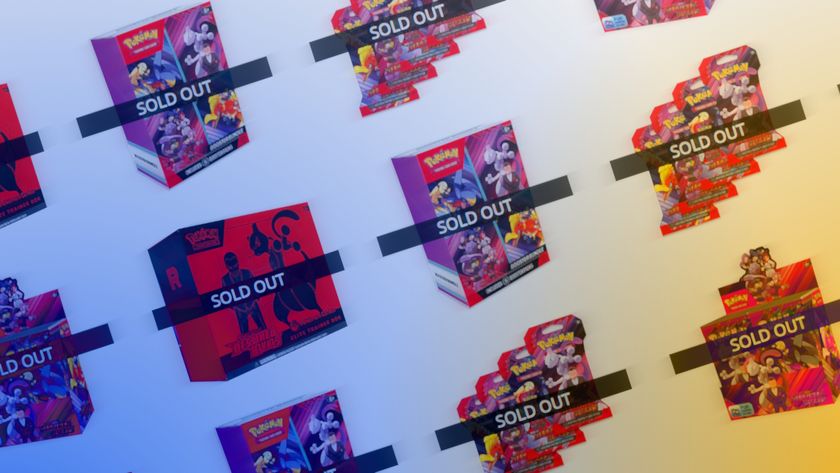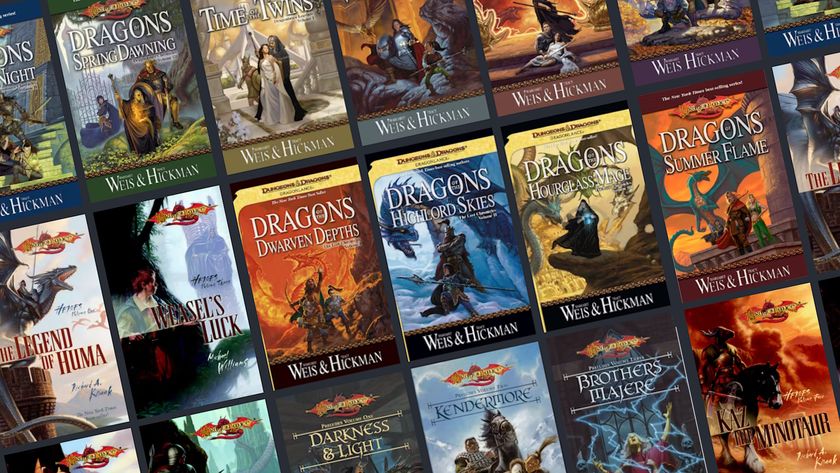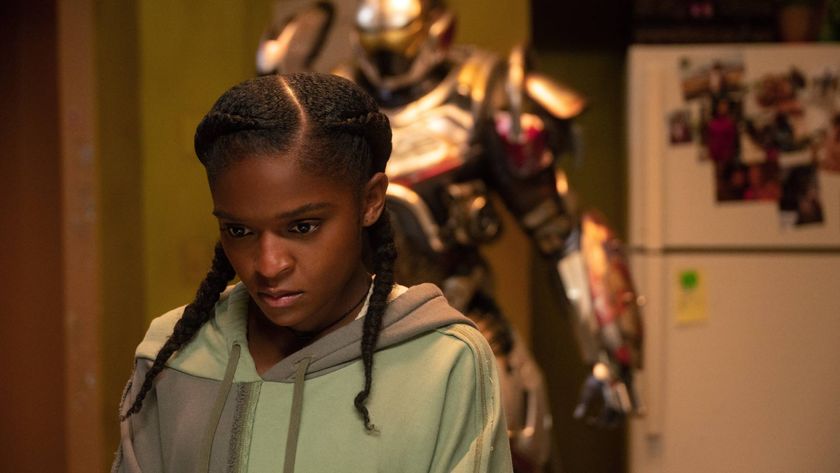I've been a DM for 10 years, so here are my 5 tips on starting your campaign right
Advice from almost a decade of GMing experience
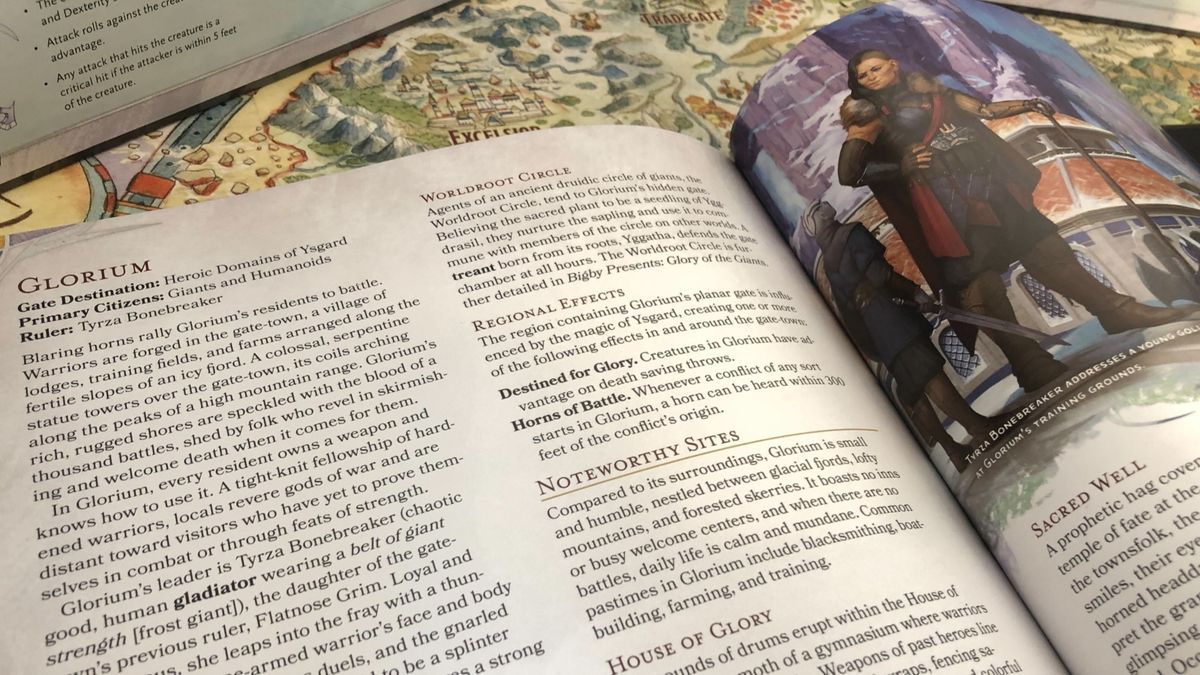
Running a DnD campaign can be intense, trying, and sometimes totally exhausting, but it's one of the most rewarding experiences you can have with your friends. It's a chance for them to feel their most epic, and for you to bask in the glory that comes with being an accomplished storyteller.
As a game master (GM), or Dungeon Master (DM), there's a lot to think about at once, and it can sometimes get a little overwhelming. That's why I – a Games MA, tabletop designer, and GM of nearly a decade – have pulled together these 5 tips for GMing a DnD campaign. Be it your first or fiftieth session, the below GMing tips will have you delivering DnD sessions with the proficiency of the legendary Matt Mercer.
As I'm sure he would tell you, being a GM means you are responsible for creating meaningful and memorable campaigns for your players, and holding up a story they'll want to see through to the end. You have to balance your players' needs with that of your own, and learn to improvise like a pro. It's not always easy to keep everyone at the table happy, including yourself. If you want to get it right, you may need to let go of some hangups and rethink the way you approach the table.
Whether you're GMing a homebrew campaign, or working through an official campaign from Dungeons and Dragons books, here are a few tips and tricks to keep your DnD sessions running smoothly, for you and your players.
1. Imagine the stupidest thing your players might do and times it by 100
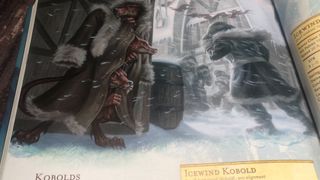
- Players do silly things, so be ready
- Prepare for them to get the wrong idea
- Expect the unexpected
DnD players are idiots. As much as the people around the table might be your closest friends, you should expect them to get over-excited and derail your session by digging for clues where there are none laid, or going off and starting a Tiefling salon business. (Yes, I did that.)
Here's the trick: you can't derail what wasn't on rails in the first place. DnD should be about free exploration. As a GM, it's your job to allow for unexpected solutions, and let your players uncover the secrets of the setting in their own way, at their own pace… to an extent, at least. Whether you're playing in a homebrew setting, or with a premade campaign, make sure you keep the planning loose and embrace the tomfoolery regardless of whether you’re playing DnD or one of the best tabletop RPGs. Use roll tables if you find it hard to invent situations on the fly, but most of all let your sources of information stay open so players can discover plot from whichever stream catches their eye.
2. Make sure everyone gets a turn
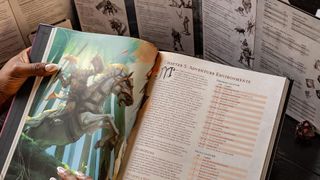
- Swot up on player backstories
- Get everyone to roll checks, if appropriate
- Try to center sessions around a player
It sounds obvious, but you never want players to leave the table feeling left out. At the small scale, it can be as simple as getting everyone to roll that History or Perception check. Not only does it mean new players will get an idea of the kinds of moves they have at their disposal, It also gives the less confident players a chance to join in and perhaps be surprised by some high rolls – those who aren't proficient can still nab a natural 20.
Sign up to the 12DOVE Newsletter
Weekly digests, tales from the communities you love, and more
Zooming out, it pays to keep abreast with your player's abilities and backstories. Then, just as you would if you were designing an episodic narrative (which you are), center each episode around a specific player. Weave their story into the main quest somehow. Essentially, give them their 15 minutes of fame. The campaign will feel much more personal, and they'll thank you for it.
3. Be flexible with your difficulty class, but respect the nats

- Rules are always in service of story
- Consider keeping DCs secret
- Respect natural 1s or 20s
Difficulty Class is the number you assign to a check, which your players need to roll (including any modifiers) in order to succeed. A lot of GMs will call the number aloud so players will know whether or not to cheer as soon as the dice lands. The best dungeon master I ever had, however, didn't. He would keep the DC number a secret, partially for an air of mystery, but mostly in the name of pacing.
You've seen the tension graphs. As a storyteller, keeping the flow should be a priority. If a win fits into the tension chart you're running through in your head -whether that's a mini one in battle, or for the narrative as a whole - let your players lop the head off that monster, even if it still has a couple of hit points left.
That said, you should try to respect critical dice rolls (natural 1 or 20) especially for death saving throws and attack rolls. Denying a success on a natural 20 is heartbreaking. Don't be that guy.
4. Reward innovative plays
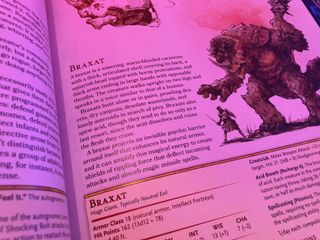
- Reward ingenuity, even if it's inconvenient
- It's OK if players side-step your plans
- Make use of environmental effects
We've all been there. All the traps are set and the pieces of the story are ready to topple like a row of dominoes, when one player somehow manages to circumvent your best-laid plans with a single smartass play. Don't let it get you down. This is the true essence of DnD, and ingenuity should be rewarded, not stifled.
Lets say one of your players decides there's likely to be a series of columns holding up the big bad's palace hall. Let it be so and when they raze it to the ground, give them something grand to mark the occasion. If someone cuts the rope holding up the chandelier above their enemy and uses it to hoist themself out of melee range, they've essentially won at DnD. Give them a pat on the back.
Draw players' attention to a few different ways to solve the problem, and throw them a bone when they ask if there's something specific to hand. Enviro-kills are epic. Players will go home feeling like they've really made their mark and they'll remember it for years to come.
5. Get in a session zero
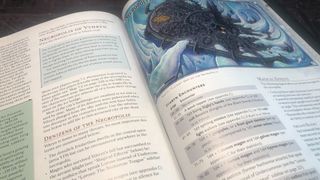
- Establish backstories for DM use
- Allow players to veto subjects
- Make sure it's a safe space for everyone
An initial session is important for blending and balancing the party, especially for newer players. Players can introduce their character ideas, and roll them up together with a mind to fill the necessary party roles. It's also great for discussing how their backstories intertwine, and can give you some great plot ideas.
Not only that, it gives you a chance to establish the themes and topics your players are comfortable hearing about. Make sure everyone is on the same page, and if a player asks to veto a certain subject you should never ask their reasoning.
Everyone has a real life backstory, and suffering is subjective. It's your job as a GM not to make people uncomfortable, but to give everyone a safe space where they feel included… otherwise there won't be much fun had at your table. I've read one too many horror stories where players have felt trapped in a campaign that centered around subjects that made them upset. Establishing boundaries is paramount.
Are you a player that's new to all this? For advice, check out our guide to the best DnD class for beginners, as well as how to create your first DnD character.

Katie is a freelance writer with almost 5 years experience in covering everything from tabletop RPGs, to video games and tech. Besides earning a Game Art and Design degree up to Masters level, she is a designer of board games, board game workshop facilitator, and an avid TTRPG Games Master - not to mention a former Hardware Writer over at PC Gamer.
